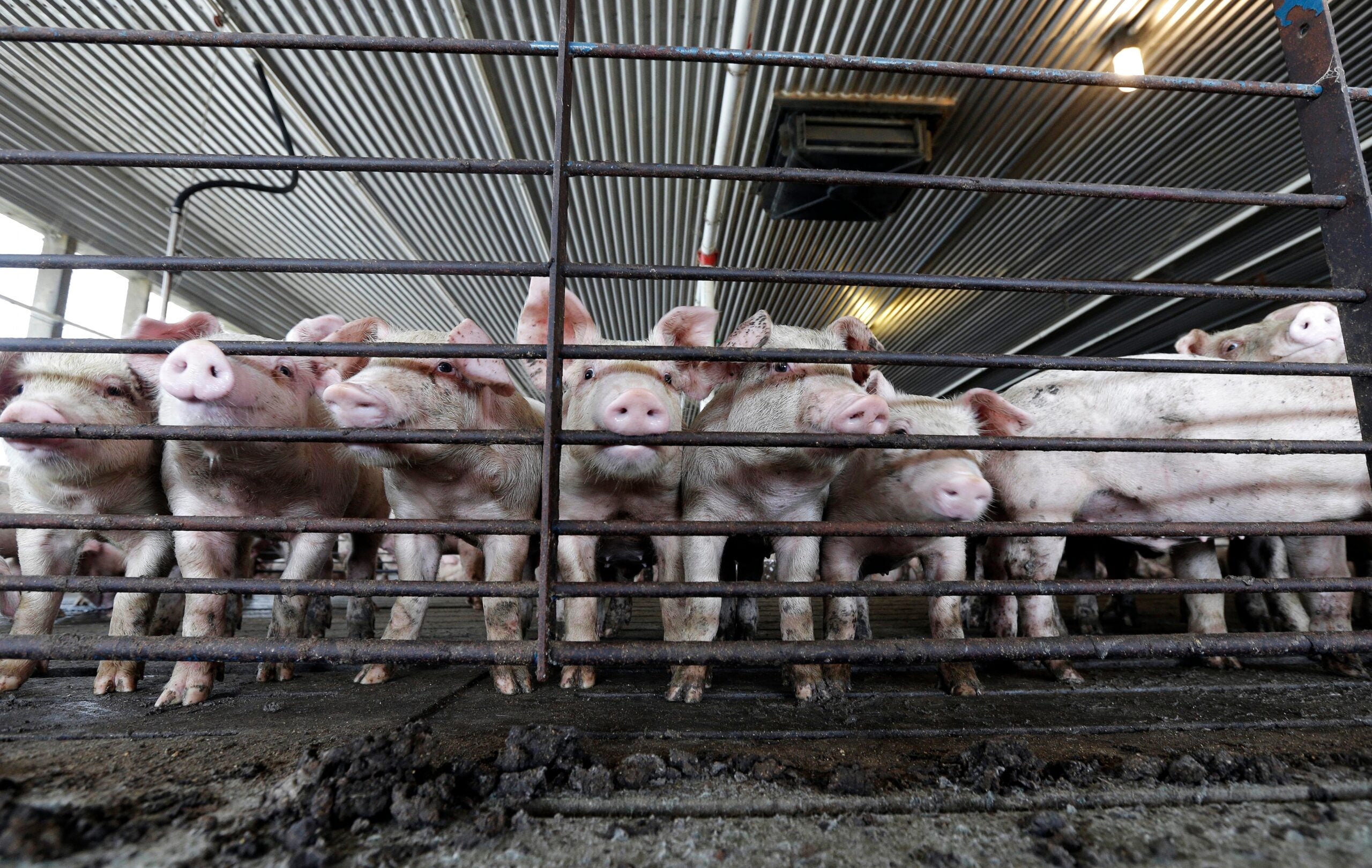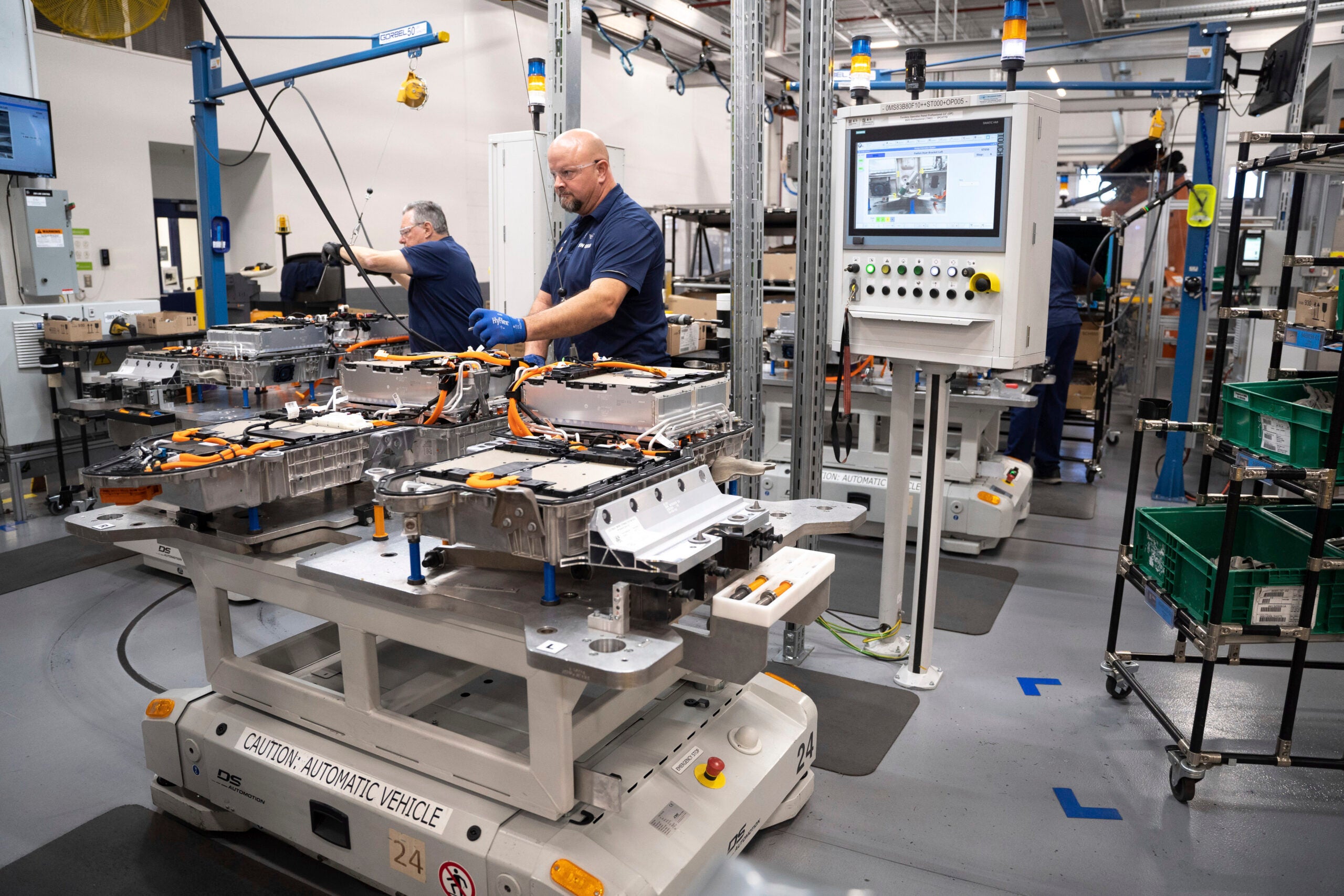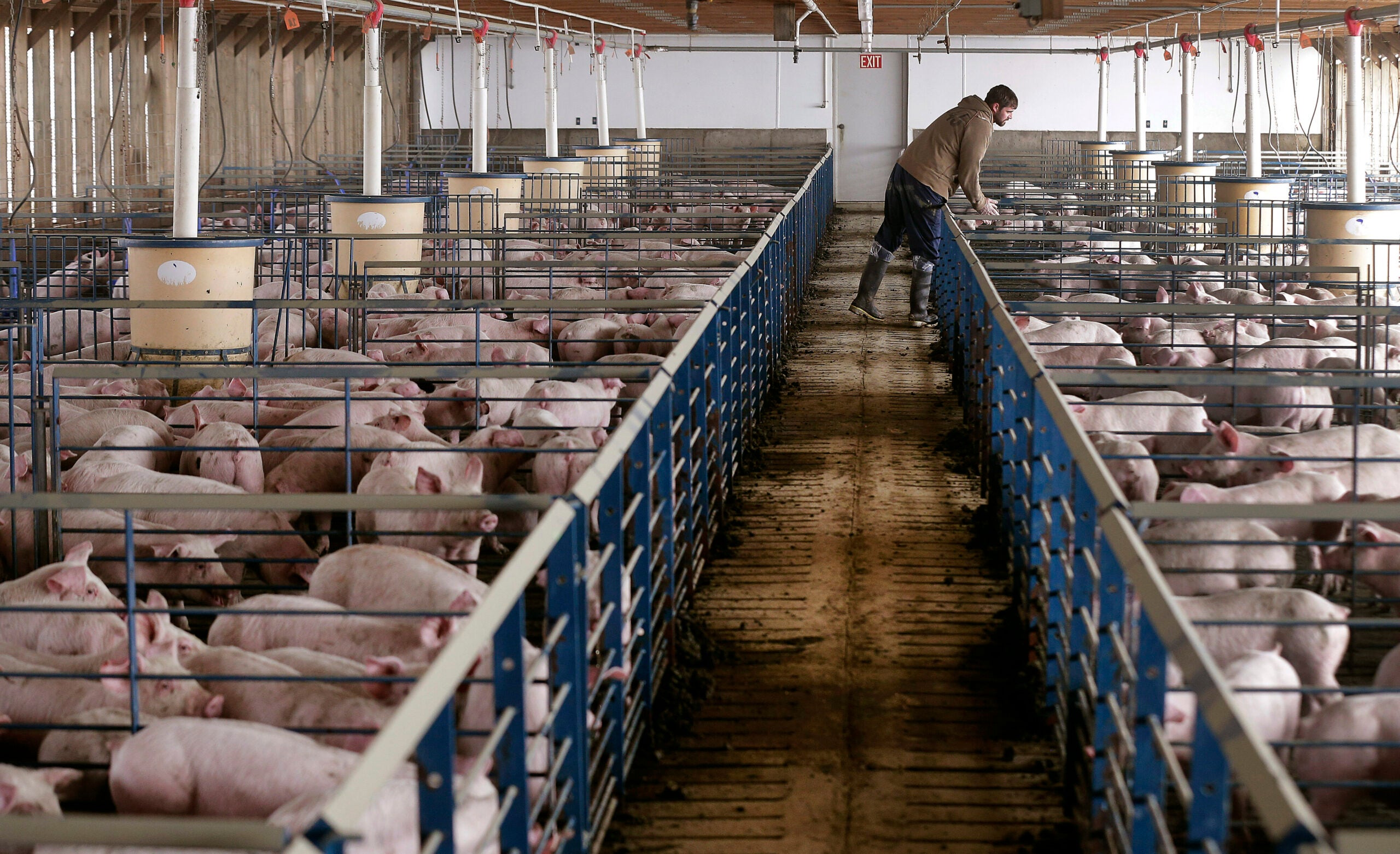As meatpacking plants slow production due to the spread of COVID-19, Wisconsin’s beef and pork producers are scrambling to plan for animals that are ready for market.
Hundreds of employees at meatpacking plants in Brown and Milwaukee counties have tested positive for the new coronavirus. Like many plants across the country, efforts to slow the spread of the virus have lowered production levels and caused temporary closures.
Dan Schaefer, emeritus professor of animal studies at the University of Wisconsin-Madison, said the uncertainty around processing capacity has caused prices to plummet.
Stay informed on the latest news
Sign up for WPR’s email newsletter.
“(Farmers) are taking a beating. Once they do have a place to harvest these animals, if they are beef-breed steers and heifers, they are probably worth now about two-thirds what they were worth six weeks ago,” Schaefer said.
He said cattle sales are down about 40 percent, with producers holding on to animals longer than usual in the hopes that capacity could improve and prices recover.
But Bill Halfman, Monroe County agriculture agent for UW-Madison’s Division of Extension, said there are also costs that come with delaying the sale of cattle.
“They’re not growing as fast at that point in time because of the amount of extra nutrients that they need just for (weight) maintenance,” Halfman said. “In addition to that, there’s just the routine daily care, taking care of them and cleaning up after them. Those don’t necessarily change a lot from normal but you’re still having to do it every day and that’s an added expense.”
Halfman said the added expenses ultimately mean less profit for farmers.
The challenge comes as the gap between what farmers are paid for animals and the retail price of meat continues to grow.
“The price that retailers pay to wholesalers is at an all-time high. So the cost of these meat products, beef products in the grocery store will be elevated,” Schaefer said, “At the same time, the value of the raw material, that is the pre-harvest animals, is approaching lows we haven’t seen in 25 years.”
Schafer said the situation is even worse for pork producers in the state.
While a farmer might be able to hold on to market-ready cattle for up to six weeks, Schaefer estimates hog farmers only have a week or two to find a buyer.
“If one thinks about a fruit item or a vegetable item having a shelf life, like a tomato — a tomato can only be displayed for a certain period of time and then it begins to lose condition — well, pigs have a relatively short shelf life,” Schafer said.
Keri Retallick, executive vice president of the Wisconsin Pork Association, said some pork producers in the state have lost sales since the start of the pandemic.
It’s part of why the association is now working with the state Department of Agriculture, Trade and Consumer Protection to connect farmers with smaller meat lockers to process animals for area food banks.
“Our hope is that, even in a small amount, we can help get those pigs associated with a processor and into packaging to get to our food pantries,” Retallick said. “We would rather get those pigs into the food supply than having to put them in a rendering type of situation.”
DATCP has set up a similar program for the dairy industry, partnering with Dairy Farmers of Wisconsin to connect processors with Hunger Task Force in Milwaukee.
But Retallick said the “Passion for Pork” initiative will not make up for the impact from larger processors slowing down. She said local meat lockers don’t have the needed storage or the capacity to package meat for other sales.
Wisconsin Public Radio, © Copyright 2025, Board of Regents of the University of Wisconsin System and Wisconsin Educational Communications Board.



